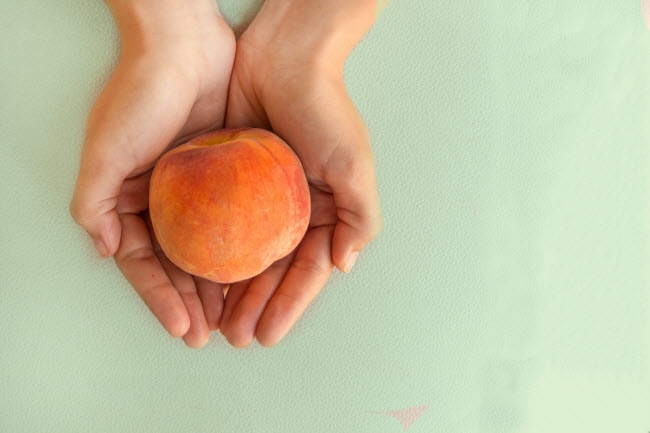August is the peak season for peaches. The juicy, delicious stone fruit is a staple of summer snacking from South Carolina to California.
Not only do peaches taste great, but they also offer a nutritional boost that is tough to beat, says Janet Bond Brill, a Hellertown, Pennsylvania-based registered dietitian.
“They are super low in calories, fat-free and chock full of nutrients,” she says. “This is as healthy as a snack gets.”
In fact, peaches might even ward off some types of disease. In honor of National Peach Month, here are five overlooked benefits of eating the flavorful fruit.
1. They help you age better
Peaches are packed with carotenoids such as:
- Lutein
- Zeaxanthin
- Beta-cryptoxanthin
These compounds help protect against free radicals, which are unstable atoms that damage the body’s cells. Thus, the protective effect of peaches can help you age more gracefully, according to the Rutgers University New Jersey Agricultural Experiment Station.
2. They help protect eyesight
Eating peaches can help keep your eyesight strong. The lutein and zeaxanthin present in peaches are associated with improved vision health.
These carotenoids help ward of chronic eye diseases such as age-related macular degeneration.
3. They keep diabetes and heart disease at bay
Peaches – and other stone fruits such as nectarines and plums – appear to have bioactive and phenolic compounds that fight both obesity and inflammation, according to researchers at Texas A&M University.
In addition, peaches may help reduce LDL cholesterol levels. LDL is the so-called "bad" cholesterol (LDL) associated with higher risk of cardiovascular disease.
“Peaches are a wonderful food for helping prevent and treat obesity, type-2 diabetes and cardiovascular disease,” Brill says.
4. They reduce your risk of developing breast cancer
Eating two or three peaches a day can significantly reduce your risk of developing breast cancer, according to a joint study out of Texas A&M and Washington State University.
The researchers found that peach polyphenols -- compounds that protect the peach from the sun’s UV radiation -- act as antioxidants in lab mice, protecting them from DNA damage associated with breast cancer.
The amount of peach polyphenols given to the mice was equivalent to two or three peaches consumed by humans.
5. They can protect your kidneys and colon
Peaches are rich in potassium, which helps protect the body against the formation of kidney stones.
In addition, peaches are a high-fiber food. A diet rich in fiber can reduce your risk of developing hemorrhoids and diverticular disease, in which small pouches form in the colon.
Getting more peaches in your diet
The easiest way to get the health benefits of peaches is to simply eat them whole. "Wash and eat on the go," Brill says.
She also suggests adding peaches to smoothies and salads, and looking for other creative ways to increase your intake of the fruit.
"Bake a peach pie with a low-calorie sweetener instead of sugar," she suggests.
You can also chop peaches and add the pieces to cereal, oatmeal, pancake batter or yogurt.
Finally, don't be afraid to enjoy dried peaches or canned peaches, particularly in the winter, when fresh peaches are harder to find and are often more expensive.
A study published in the Journal of the Science of Food and Agriculture reported that canned peaches are just as packed with nutrients as their fresh counterparts.
In fact, the canning process may actually open the cell walls of a peach's flesh, making it easier for the body to extract the nutritional benefits of the fruit.




